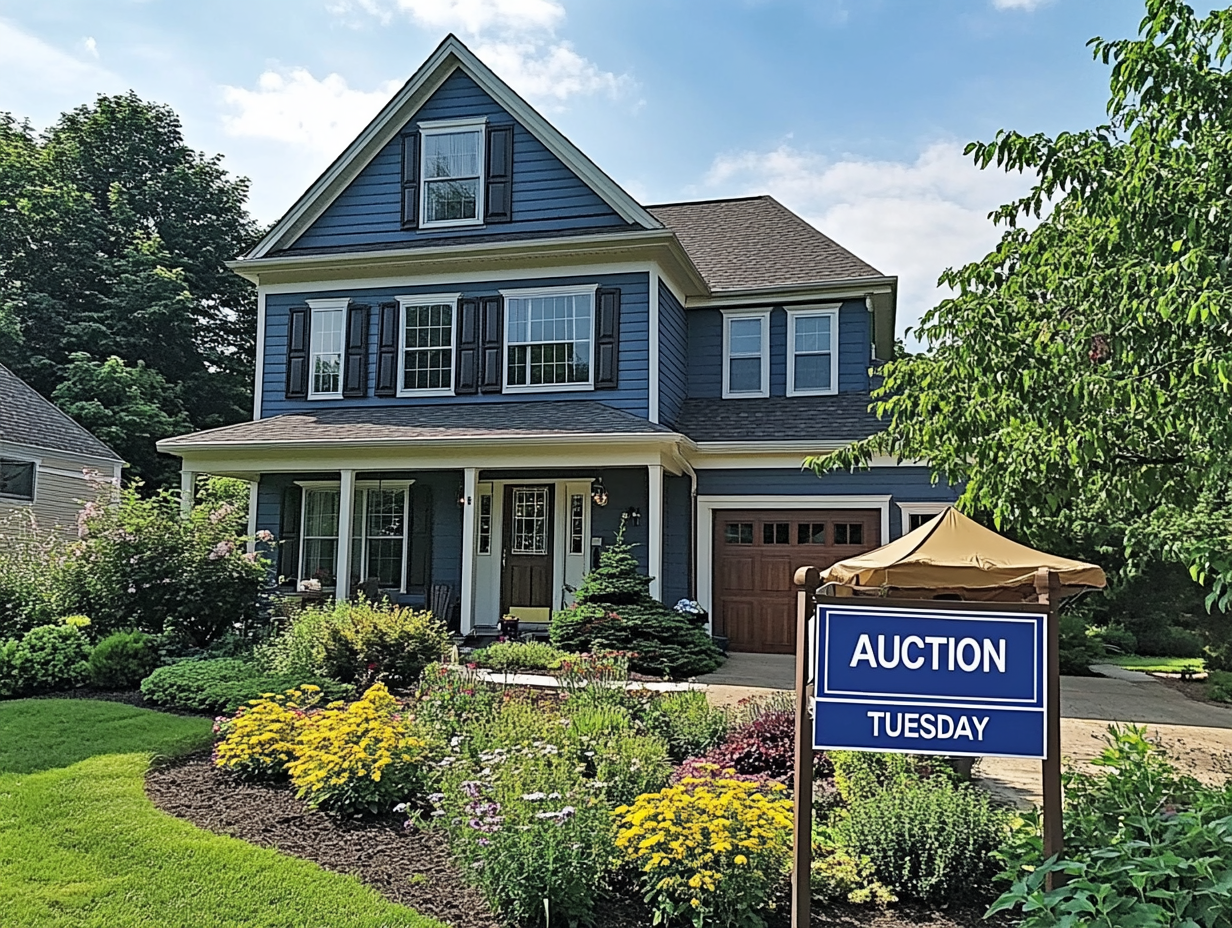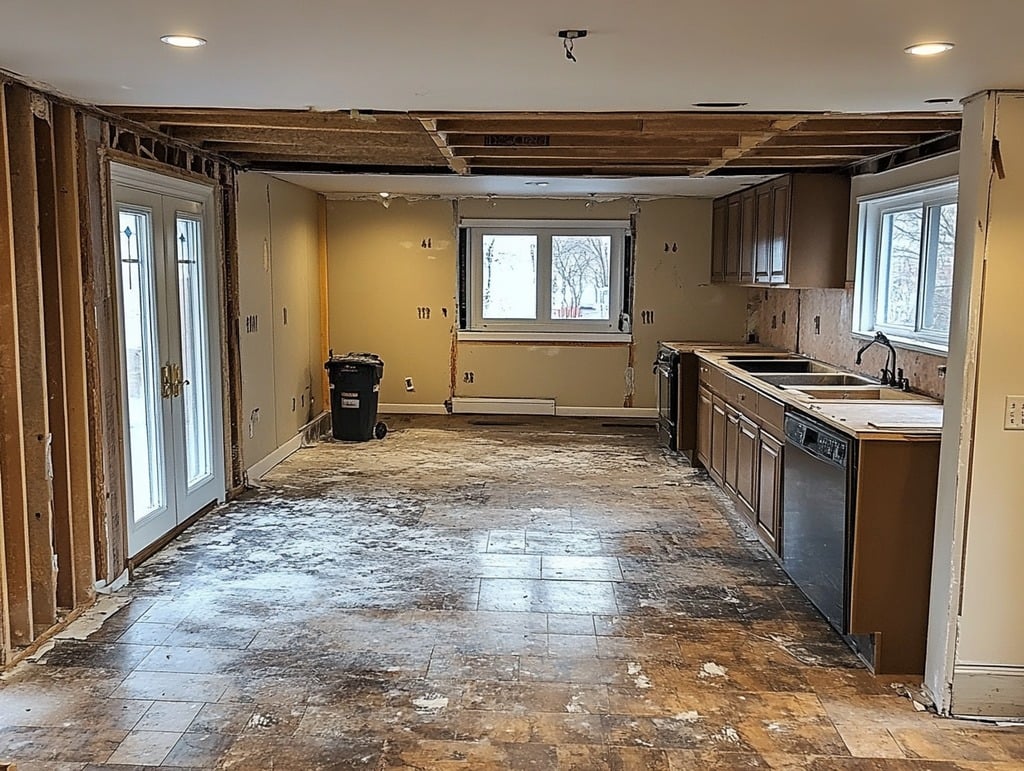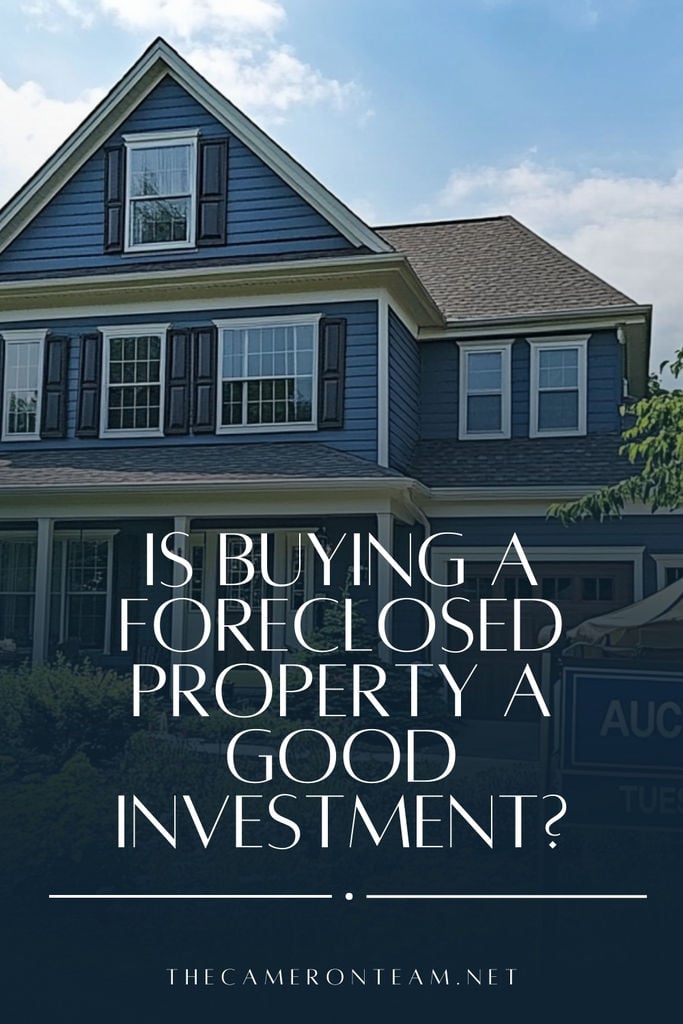Foreclosed properties often seem like a golden opportunity for investors and homebuyers alike. They can be priced below market value, providing a chance to snag a home at a discount. But is buying a foreclosed property actually a good investment?
While there are clear advantages to purchasing a foreclosed home, there are also risks that need to be carefully weighed. In this blog, we’ll break down the pros and cons, explain different types of foreclosure sales, and provide tips for making a smart purchase.
What is a Foreclosed Property?
A foreclosed property is a home that has been reclaimed by a lender after the homeowner fails to keep up with mortgage payments. Lenders then sell these homes—often at a discount—to recover their losses.
Foreclosed homes are sold in three main ways:
- Pre-Foreclosure (Short Sale): The homeowner sells the property for less than they owe before the bank completes the foreclosure process.
- Auction: The lender auctions the home, typically to the highest bidder, sometimes requiring a cash payment upfront.
- Bank-Owned (REO – Real Estate Owned): If the home doesn’t sell at auction, the bank retains ownership and sells it through a real estate agent.
Each of these methods has its own advantages and challenges, which we’ll explore below.
Pros of Buying a Foreclosed Property
1. Lower Purchase Price
One of the biggest draws of foreclosed properties is their discounted price. Lenders want to offload these homes quickly, which means you might be able to buy a property well below market value. This makes foreclosure properties appealing to house flippers, investors, and budget-conscious buyers.
2. Potential for High ROI (Return on Investment)
Because foreclosures are typically priced lower than comparable homes, they offer the potential for strong appreciation once they’re repaired and renovated. If you can buy at a deep enough discount and add value through upgrades, you could see a significant return on your investment when you sell.
3. Less Competition (Sometimes)
While foreclosures can be in high demand in certain markets, they typically attract fewer buyers than move-in-ready homes. This could work in your favor, allowing you to secure a deal without getting caught in a bidding war.
4. Opportunity to Build Equity Quickly
If you buy a foreclosure at a bargain price and make smart renovations, your home’s value could increase significantly. This allows you to build equity much faster than you would with a traditional purchase.
5. Motivated Sellers
Banks and lenders don’t want to hold onto foreclosed properties for long. They are motivated to sell, meaning you might be able to negotiate a better deal, particularly with bank-owned properties (REOs).
Cons of Buying a Foreclosed Property
1. Homes Are Often Sold “As-Is”
Foreclosed properties are usually sold in their current condition, meaning the lender won’t make repairs. If the previous owner was struggling financially, they may not have maintained the property well—or they may have intentionally damaged it before leaving.
2. Hidden Repair Costs
Many foreclosures have been vacant for months or even years, leading to problems like:
- Mold growth
- Plumbing and electrical issues
- Roof damage
- Pest infestations
Since inspections aren’t always allowed before purchase (especially at auctions), you might end up with costly surprises.
3. Complicated Buying Process
Foreclosures often come with extra paperwork and a slower transaction process. Banks and lenders aren’t as emotionally invested in selling as a traditional homeowner, meaning negotiations can take longer.
4. Auction Risks
If you’re buying a foreclosure at auction, you usually need to pay in cash—often without seeing the property first. This is a huge risk, as you could end up with a home that requires extensive repairs, potentially erasing your expected savings.
5. Title Issues
Some foreclosed homes may have liens from unpaid property taxes, HOA fees, or even second mortgages. If you don’t do proper due diligence, you could inherit these debts when you buy the home.
Best Strategies for Buying a Foreclosed Property
If you’re considering investing in a foreclosure, here’s how to increase your chances of success:
1. Work With an Experienced Real Estate Agent
Navigating the foreclosure market can be tricky. A knowledgeable real estate agent—especially one with foreclosure experience—can help you find deals, avoid pitfalls, and negotiate effectively.
2. Get Pre-Approved for Financing
If you’re not buying with cash, get pre-approved for a mortgage ahead of time. Some lenders offer special loans for buying foreclosures, like FHA 203(k) loans, which include funds for repairs.
3. Research the Property’s History
Look into the home’s title history, past sale prices, and any outstanding debts. A title search can help you avoid properties with legal complications.
4. Inspect the Property (If Possible)
If you’re buying a bank-owned foreclosure, you may have the opportunity to get a professional home inspection before finalizing the deal. This can save you from unexpected repair costs.
5. Set a Budget for Repairs
Factor in the cost of repairs and renovations before deciding if a foreclosure is a good investment. A home that seems like a bargain can quickly become a money pit if major repairs are needed.
6. Be Patient
Foreclosure sales don’t always move quickly. Banks can take time to process offers, and paperwork delays are common. If you’re in a rush to move in, a foreclosure might not be the best option.
Who Should Consider Buying a Foreclosed Property?
Buying a foreclosure can be a great investment, but it’s not right for everyone. Here’s who might benefit the most:
✅ Investors & House Flippers – If you have experience renovating homes and understand market trends, a foreclosure could provide strong profit potential.
✅ First-Time Homebuyers (With Patience) – If you’re looking for an affordable way to enter the housing market and don’t mind some renovation work, a foreclosure could be a good option.
✅ Buyers With a Flexible Timeline – If you’re not in a rush to move in, you can wait for the right foreclosure opportunity and go through the sometimes lengthy buying process.
✅ DIY Enthusiasts – If you’re handy and can do some of the repairs yourself, you could save a lot of money and build instant equity.
However, a foreclosure might not be the best choice if: ❌ You need a move-in-ready home
❌ You’re not prepared for potential repair costs
❌ You’re unfamiliar with the foreclosure buying process
❌ You don’t have extra funds to cover unexpected expenses
Final Verdict: Is Buying a Foreclosed Property a Good Investment?
Buying a foreclosure can be a smart investment, but it comes with risks. If you do your research, work with professionals, and prepare for potential repair costs, you could land a great deal and build equity quickly.
However, if you’re not comfortable with uncertainty, need a home immediately, or lack funds for unexpected expenses, a foreclosure might not be the best fit.
Key Takeaways:
- Foreclosures can offer lower prices and high ROI, but they often require repairs.
- Bank-owned properties (REOs) are generally safer than auction purchases.
- Due diligence is critical—inspect the home, check for liens, and budget for renovations.
- The foreclosure buying process can be slow and complicated—patience is key.
If you’re considering buying a foreclosed property in Wilmington, NC, or surrounding areas, our team at The Cameron Team can help you navigate the process. Contact us today to explore foreclosure opportunities and find the best investment for your needs!







